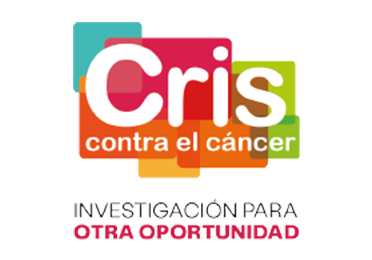
- The increasing number and complexity of biomarkers that guide the selection of new therapies against cancer fragments knowledge on the biology of the disease and hinders the implementation of precision medicine.
- A new digital platform, already in operation in Vall d’Hebron University Hospital, combines different cutting-edge bioinformatic methods with access to multiple databases to interpret the clinical relevance of the molecular alterations observed in the tumor of each patient.
- This new tool, developed in a project co-led by the Vall d’Hebron Institute of Oncology, is described in a recent article published in Nature Medicine. The tool was used to analyze more than 500 tumors and match patients more effectively with ongoing clinical trials testing novel drugs.
Barcelona, July 6, 2020. – The molecular profiling of tumors has opened the door to more effective therapies adapted to the condition of each patient. However, this approach has posed new challenges to medical teams, who are required to interpret the molecular alterations detected in the tumor of each patient and select the most appropriate treatment based on the most recent scientific evidence. To assist decision-making, the Karolinska Institute and SciLifeLab, in collaboration with clinical researchers from seven European centers led by Vall d’Hebron Institute of Oncology (VHIO), under the umbrella of the Cancer Core Europe Consortium, have developed a new technology to interpret the genomic profile of tumors and identify the most adequate treatment for each patient. This tool, already in operation in Vall d’Hebron University Hospital, has been recently described in an article published in Nature Medicine by Dr. David Tamborero, a senior researcher at the Karolinska Institute, and Dr. Rodrigo Dienstmann, principal investigator of VHIO’s Oncology Data Science Group. “With this tool, we seek to support clinicians in an increasingly complex decision-making environment that requires the use of complex databases and computer programs that are not easy to use” explains Dr. Rodrigo Dienstmann.
As the number of molecular biomarkers grows, the use of leading-edge technologies becomes more necessary to facilitate the interpretation of genomic data and the sharing of information, and support treatment planning. Aware of this challenge, Cancer Core Europe (CCE) developed the Molecular Tumor Board Portal, described in the article published by Dr. Dienstmann and Dr. Tamborero. This tool is a clinical decision-making platform that combines a variety of state-of-the-art bioinformatic methods to determine the biological relevance of genetic variants and their clinical actionability.
A collaborative tool
The Molecular Tumor Board Portal is currently used by a collaborative network composed of seven European cancer centers including VHIO. The portal has analyzed more than 500 patients included in the Basket of Baskets trial (NCT03767075), a several-arm trial that involves patients whose tumors have been categorized based on their genomic characteristics and are unresponsive to standard therapies. “The portal automates data interpretation, which prevents errors associated with manual processing and allows systematic analysis based on a set of clinical criteria developed by experts” explains Dr. David Tamborero, the leader of the project. “The use of this platform also avoids delays in the delivery of results, which is critical for patients whose condition may deteriorate rapidly” adds Dr. Tamborero.
The portal provides a platform for the secure sharing of results through personalized reports that contain comprehensive molecular information on the tumor of each patient. These reports are interactive data-rich documents that are discussed weekly in virtual meetings, where the representatives of the multidisciplinary teams of each CCE center define the most appropriate clinical actions. “From the perspective of oncologists, this system has changed the way we work. This portal provides access to the most current knowledge on the tumor mutations relevant to each patient and offers the opportunity to discuss cases with experts from the seven centers in a truly collaborative manner” says Dr. Rodrigo Dienstmann.
Rapid learning curve
Another advantage of this new tool is that it has a very rapid learning curve. The system yields comprehensive structured results through an interface for oncologists, who must make decisions based on solid information. On a general basis, only a few minutes are devoted to discuss each case, which is essential to being able to escalate the use of data to a large number of patients.
In line with our responsible-R&D policies, an open-access version of the tool aimed at non-CCE researchers has been developed, available at https://mtbp.org. “In our opinion, the use of this portal in the clinical setting is crucial to accelerating the translation of research findings into routine practice. Our objective is to create a digital oncology platform that helps perform a reliable evaluation of new biomarkers and further improve the selection of personalized treatments and the development of clinical trials” concludes Dr. Dienstmann.
_________________
Reference:
Tamborero, D., Dienstmann, R., Rachid, M.H. et al. Support systems to guide clinical decision-making in precision oncology: The Cancer Core Europe Molecular Tumor Board Portal. Nat Med 26, 992–994 (2020). https://doi.org/10.1038/s41591-020-0969-2










